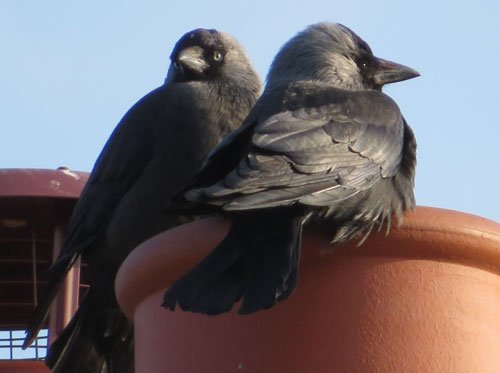
Tips for bird-keepers
Share
The current Covid-19 (coronavirus) “lockdown” presents challenges to all who keep birds, whether that is in the home, in a bird-room, aviary or zoological collection.
First, the birds need to be cared for. As my wife and I always remind students, a captive animal is entirely dependent on its keeper. The Covid-19 restrictions mean that this may not be as easy as it was only a month ago. For example, an elderly fancier may no longer have access to help with his birds from a younger relative, a neighbour or perhaps a local youngster with an interest in aviculture. The fancier may have to do all the cleaning and feeding him/herself. This dilemma needs careful thought and planning, especially if isolated on their own at home.
It is vital that those looking after birds have a contingency plan in case they become ill – from Covid-19 or something else – and are no longer able to look after their birds. They should think “Is there anyone who could call in, perhaps as part of their government-sanctioned daily exercise, to feed or tend my birds?” Or if the bird-keeper is in isolation with a spouse or partner, does the other person know what to do in the bird-keeper’s absence? Now is the time to write down basic instructions for the care of the birds - how many there are, where they are, how to get access to them (keys etc) and the daily routine, especially in respect of ensuring that they are fed and given water. One version of the written notes should be put in a conspicuous place in the house or on the door of the bird-room and a copy posted or emailed to someone reliable who could assist in the bird-keeper’s absence.
One vital consideration, even if you are in a position to continue looking after your birds yourself, is availability of food. So-called “panic-buying” in supermarket shelves has included the purchase of larger quantities of seed for birds than would be expected under normal circumstances. If you buy your bird food from a company, ‘phone them and ask if they are still selling and distributing their products. John E Haith Ltd (Haith's) has been working round the clock recently to satisfy the increase in orders and Simon King FLS, Haith's Associate Director – advises “To keep an eye on your bird seed reserves and please try to plan ahead more carefully than we might do under normal circumstances; however, should you realise your birds are in jeopardy because you’re close to running out of seed – ‘phone 0800 298 7054 and we’ll do our best to help”.
In our next Tips for bird-keepers we shall talk about the benefits of having more time to yourself during the current Covid-19 “lockdown” and how you can use it to give your birds more attention. We shall also discuss health and disease and what to do if you have a sick bird while you are confined to your home. In that context, remember that there is no evidence that Covid-19 can affect birds. However, there are other viruses in the family Coronaviridae that affect chickens, turkeys, pheasants and pigeons and indeed the first coronavirus ever described (eighty years’ ago) was the one that causes the disease infectious bronchitis (IB) in domesticated chickens – economically of great importance in much of the world and a cause of distress and often death in affected birds.
There is, however, growing evidence, that cats may be susceptible to the virus – and some readers may have heard last Sunday about the tiger in the USA, at the Bronx Zoo, New York, which showed clinical signs of a dry cough and loss of appetite and tested positive for Covid-19. None of this should concern the average bird-keeper (unless s/he keeps a pet tiger or perhaps works at a zoo and looks after big cats as well as birds) but it could provide another reason for discouraging cats in the garden.
And one other thing before the next Tips for bird-keepers. Fanciers should remember to take time to watch the wild birds that they see in their garden or through the windows of their sitting-room. These are not only a delight in their own right, especially at this time of year when they are courting and nesting, but because they can remind us of the signs and importance of good health and how this should be emulated by those who keep birds in captivity. Look, for example, at the picture below of two jackdaws keeping watch over their nest in our neighbour’s chimney pot. The sun reflecting off the plumage of the bird in the front reminds us that clean shiny plumage is an important indicator of avian health, as is the alert appearance and the round, bright, eye of the jackdaw behind.

Those reading this could go a step further and consider becoming a Haith's 'Armchair Naturalist'. The aim of this is to encourage more people to take a fresh look at the natural world, which will help them and their friends and family make it through coronavirus isolation and stay fit, well and mentally healthy.

John E Cooper FRCVS
Veterinary Advisor to Haith’s.

